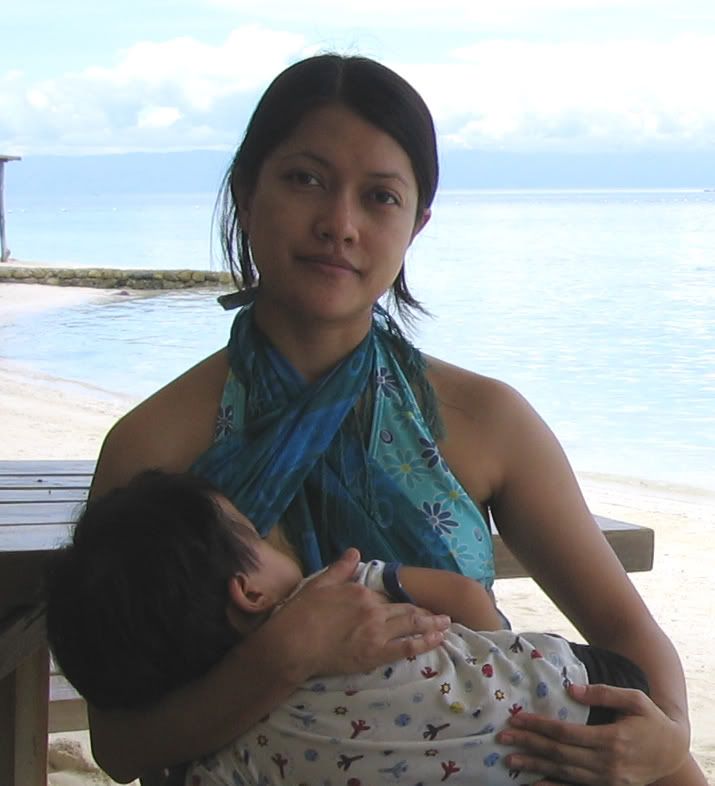
It's official: this Rodrigo family is boycotting Nestle.
When I joined UNICEF 13 years ago, I knew that Nestle was taboo, a company that UNICEF was never to work with or be associated with or even be said in the same breath. But even when I became a breastfeeding mother and a staunch breastfeeding advocate and somewhat of a breastfeeding counsellor, I never had a personal beef with Nestle. Until now.
So what happened? I had brought home a film from the office entitled, "Formula Fix." It's a 1989 report by the Australian Broadcasting Corporation on how milk companies in Pakistan and the Philippines were violating the International Code on the Marketing of Breastmilk Substitutes. I had begun watching the film in the office, but had gotten very upset to the point of crying in my cubicle. So at 2 am this morning, when my husband and I woke up hungry (I nurse round-the-clock; I don't know what his excuse is), we decided to watch it.
It is infuriating. Infant formula companies are intentionally marketing their products to the poorest of the poor. Families whom they know do not have access to clean water, do not have the resources to ensure that feeding bottles and nipples are sterilized, and do not have the money to keep buying the infant formula. They were doing it in the 80's and they're still doing it now. See for yourself; watch our latest documentary, "Formula for Disaster", now in YouTube:
http://youtube.com/watch?v=SNYDPKQOVUE
The results are babies so weak, ill and malnourished that they can barely cry. They look like old men, all wrinkled up and thin. In the ABC report, I watched one baby die after suffering from repeated diarrhea. I looked at those babies and thought of Anton, with his chubby cheeks and his body so full of heft. Anton is so heavy I can no longer rock him to sleep. Those babies are a far cry from him and I could not help but mourn for all the babies who suffer, sometimes to the point of death, just because they did not get Mommy's milk. None of our children had ever had ear infections. My two older children only experienced diarrhea when they were already school-aged, and so far only once each.
So this morning, my husband announced to the kids: "Did you see the pack of Baby Ruth's in the refrigerator? Enjoy them now because this is the last time we're buying them. Starting today, we are boycotting Nestle."
If you want to learn more, please visit the website of Baby Milk Action. They have a page dedicated to the "fight for the breast" in the Philippines:
http://www.babymilkaction.org/CEM/cemnov06.html
I urge you to sign the online petitions as well. In June, the Department of Health (DOH) will have its last chance to implement tougher restrictions on the marketing and advertising of infant formula. DOH will be presenting its oral arguments before the Supreme Court. At the same time, the Pharmaceutical and Healthcare Association of the Philippines (PHAP), who has challenged DOH's policies, will also be presenting in court. The Supreme Court suspended DOH's regulations because PHAP claimed that their members would lose billions of pesos if their marketing activities were restricted.
So the question is: which do we protect, corporate profits or children's lives?
What is YOUR choice?
* Graphic donated by Rebecca Clark to Baby Milk Action


